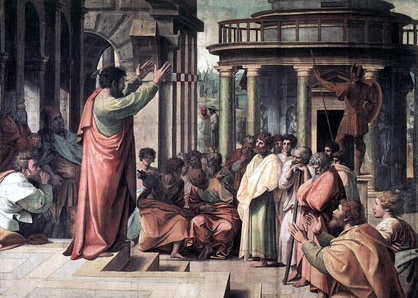Ecumenical Councils Turkey
Christianity, which began as an obscure sect in Judea, survived and
shaking off its Judaistic roots developed in the cosmopolitan world of
Greco-Roman pagan cults. As it followed its natural path various sorts
of local Christianity factions such as Donatists, Novatians, Paulinists,
Marcionites , Docetists, Montanists, Meletians and Arians and many others
emerged.
, Docetists, Montanists, Meletians and Arians and many others
emerged.
While some of these disappeared without becoming widespread heresies
some shook Christianity at its roots. The dissensions which were part of
the latter group rose from the concept of worshipping a being who was
also a man, a concept which had become more complex by the addition of
the third divine element, the Holy Spirit.
By the reign of Constantine the Great (324-37, sole ruler) it had become
possible to summon general councils which were called Ecumenical
Councils to find answers to such questions. It was believed that if all
the bishops came together the Holy Spirit would descend and guide their
decisions. The number and sort of participants and the decisions of
these meetings, however, would often be decided by the politics of the
period, being manipulated by the emperor.
There were seven such Ecumenical Councils before the disagreements
between Latin (Western) and Greek (Eastern) Christians prevented the
holding of any more councils recognized by the whole Church. Except the
last one which dealt with Iconoclasm the main topic of the councils was
to answer the questions about the Person of Jesus or the Holy Spirit or
to reassert the already defined dogma against heretical views such as
Arianism, Monophysitism, and alike.
However, in addition to such major questions, regulations about Church
discipline were
 also made. Apart from these Ecumenical Councils there
were some which the Roman Church regards as ecumenical, because the
Roman Church believes itself to be the one legitimate Christian
communion in the whole world; but these later councils were not attended
by the representatives of the Greek Orthodox Churches, and are not
regarded by those Churches, nor by the Anglican Church, as having been
really ecumenical.
also made. Apart from these Ecumenical Councils there
were some which the Roman Church regards as ecumenical, because the
Roman Church believes itself to be the one legitimate Christian
communion in the whole world; but these later councils were not attended
by the representatives of the Greek Orthodox Churches, and are not
regarded by those Churches, nor by the Anglican Church, as having been
really ecumenical.
The church as established in the middle east has been established under
the concept of unity IE catholic and or ecumenical. For the earliest
Christian communities the concept of unity
was
one were the church communities agreed on a doctrinal understanding of
Christianity. A doctrine based on the tradition of unity within the
different ancient Christian communities. Unity established in what was
taught to the communities by Christ and then his apostles. When various
persons or groups within the many ancient Christian communities began to
come to odds with innovations or interpretations of the tradition of
Christianity the communities set out to clarify the validity of the
variation in the comparison to traditional understanding. To establish
why this change was to be accepted or rejected. As such was the case of
the first council in Jerusalem. The later councils where prompted to
clarify tradition and address what was proper and what was improper.
Proper being what was established by Jesus Christ and then his apostles,
then the Seventy and the clergy of the churches that take their linage
directly back to the Apostolic era. Innovations being that which changed
the understanding that Christian communities.
Ecumenical Councils Turkey
First Council of Nicaea
(325)
First Council of Constantinople
(381)
Council of Ephesus
(431)
Council of Chalcedon
(451)
Second Council of Constantinople
(553)
Third Council of Constantinople
(680-1)
Second Council of Nicaea
(787)


